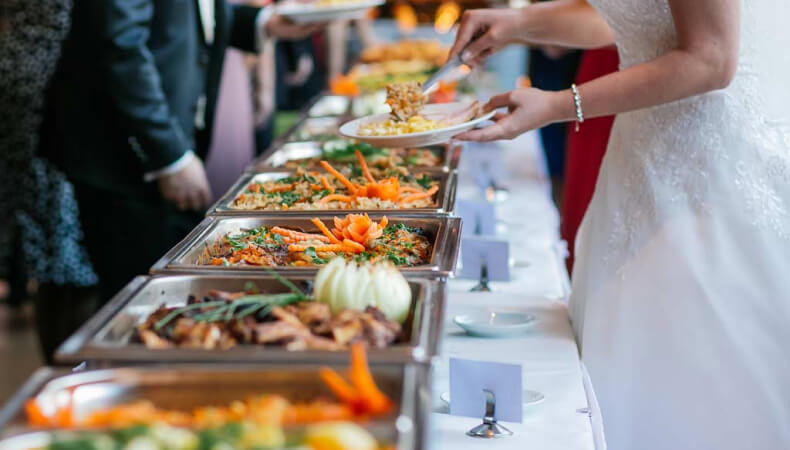
When it comes to planning a wedding, one of the most important aspects to consider is the food. Wedding food catering plays a crucial role in ensuring that your guests are well-fed and satisfied during the reception. To help you plan the perfect wedding menu, here is the ultimate guide to wedding food catering with tips and tricks for a delicious reception.
The first step in planning your wedding food catering is to determine your budget and guest count. This will help you establish how much you can spend per person and how many dishes you will need to serve. It's important to consider any dietary restrictions or preferences that your guests may have, such as vegetarian, vegan, gluten-free, or kosher options. By taking these factors into account, you can ensure that all of your guests are catered to and satisfied with the food options available.
Next, you will need to decide on the style of service for your wedding reception. Will you be having a plated dinner, a buffet, food stations, or a cocktail-style reception? Each style of service has its own advantages and can create a unique experience for your guests. Plated dinners are traditional and elegant, while buffets and food stations allow for more variety and interaction among guests. Cocktail-style receptions are perfect for a more casual and social atmosphere.
When it comes to selecting the menu for your wedding reception, it's important to consider a variety of options to cater to different tastes and preferences. Start by choosing a selection of hors d'oeuvres for cocktail hour, such as mini sliders, bruschetta, shrimp cocktail, or cheese platters. For the main course, consider offering a variety of proteins such as beef, chicken, fish, or vegetarian options. Don't forget to include side dishes, salads, and bread rolls to complete the meal.
It's also important to consider the season and time of day when planning your wedding menu. For a summer wedding, light and refreshing dishes such as salads, grilled vegetables, and fruit platters are ideal. In contrast, a winter wedding may call for heartier options such as roast beef, mashed potatoes, and hearty soups. Brunch weddings are becoming increasingly popular and offer a unique menu with options such as omelette stations, waffles, and mimosas.
When working with your caterer, don't forget to consider beverage options as well. In addition to traditional offerings such as wine, beer, and soft drinks, you may want to consider creating a signature cocktail for your wedding. This can add a personal touch to your reception and give guests a unique drink to enjoy throughout the evening.
Another important aspect of wedding food catering is presentation. Consider how the food will be displayed and served to your guests. Buffets and food stations can be beautifully arranged with decorative trays, platters, and garnishes. Plated dinners can be elegant with carefully arranged dishes and artistic presentation. Remember, guests eat with their eyes first, so take the time to ensure that the food looks as good as it tastes.
Finally, don't forget to consider the logistics of your wedding food catering. Make sure that your venue has a kitchen or food prep area for your caterer to work in. Consider the equipment that will be needed, such as chafing dishes, serving utensils, and plates. Communicate with your caterer about any specific needs or requests you may have, such as children's meals, late-night snacks, or special dietary accommodations.
By following these tips and tricks for wedding food catering, you can ensure that your reception is a delicious and memorable event for you and your guests. With careful planning and attention to detail, you can create a menu that reflects your personal tastes and preferences while catering to the needs of your guests. Remember, good food is key to a successful wedding celebration, so take the time to plan a menu that will leave your guests raving about the food long after the last dance.
